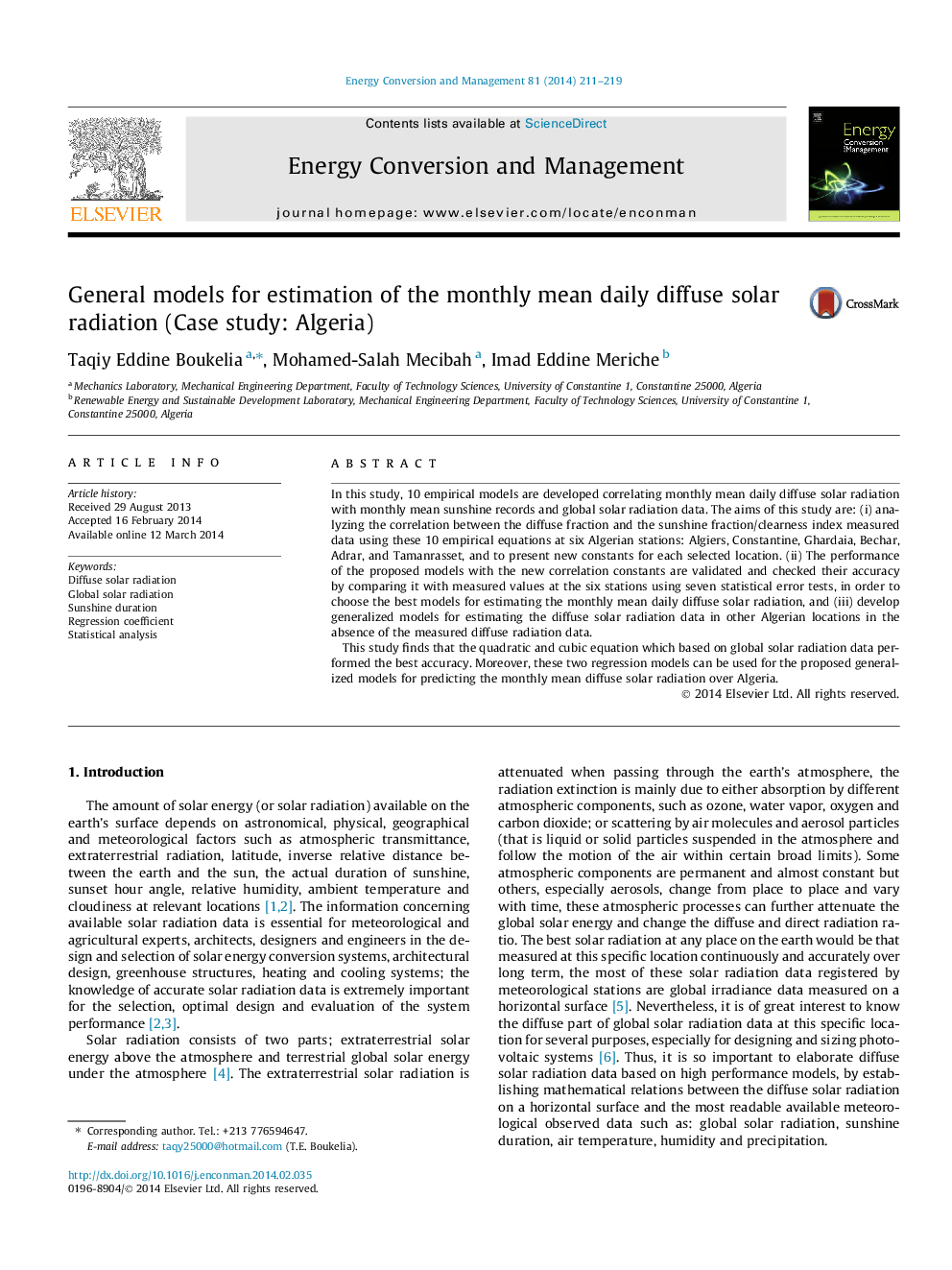| Article ID | Journal | Published Year | Pages | File Type |
|---|---|---|---|---|
| 763980 | Energy Conversion and Management | 2014 | 9 Pages |
•Establishing 10 empirical models based on sunshine hours and global radiation data.•Estimating the correlation coefficients of the models by curve estimation technique.•Validation of all obtained models by seven statistical parameters.•Introduce the best model of each category for the six Algerian sites.•Two generalized models for estimating the diffuse radiation in Algeria are proposed.
In this study, 10 empirical models are developed correlating monthly mean daily diffuse solar radiation with monthly mean sunshine records and global solar radiation data. The aims of this study are: (i) analyzing the correlation between the diffuse fraction and the sunshine fraction/clearness index measured data using these 10 empirical equations at six Algerian stations: Algiers, Constantine, Ghardaia, Bechar, Adrar, and Tamanrasset, and to present new constants for each selected location. (ii) The performance of the proposed models with the new correlation constants are validated and checked their accuracy by comparing it with measured values at the six stations using seven statistical error tests, in order to choose the best models for estimating the monthly mean daily diffuse solar radiation, and (iii) develop generalized models for estimating the diffuse solar radiation data in other Algerian locations in the absence of the measured diffuse radiation data.This study finds that the quadratic and cubic equation which based on global solar radiation data performed the best accuracy. Moreover, these two regression models can be used for the proposed generalized models for predicting the monthly mean diffuse solar radiation over Algeria.
